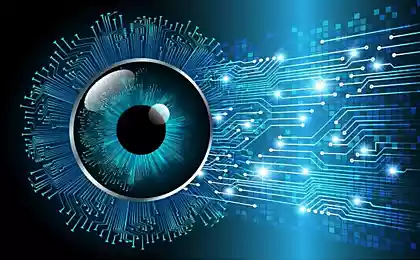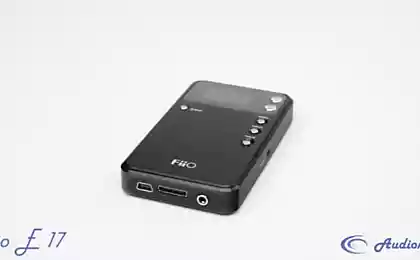755
History intercom (9 photos)
There is not a man who would not read in childhood tales and who has not heard stories about Ali - Baba and the 40 Thieves. Only now I thought anyone that is in this tale was first heard a hint of the same intercom, who opened the entrance to the cave after uttering the codeword "sim-sim open up».
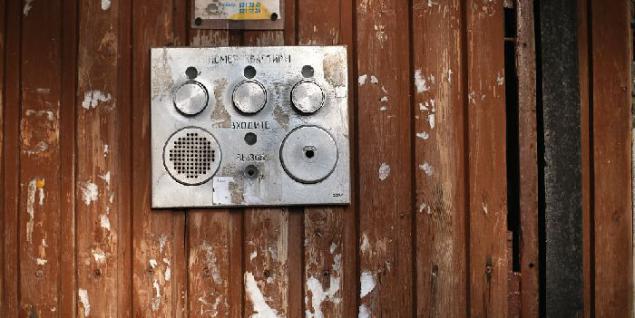
Only 150 years after this story, in the 50s of the 20th century, somewhere in the United States, and perhaps in Scandinavia humanity "again" invented the same device which currently enjoys almost every one of us.
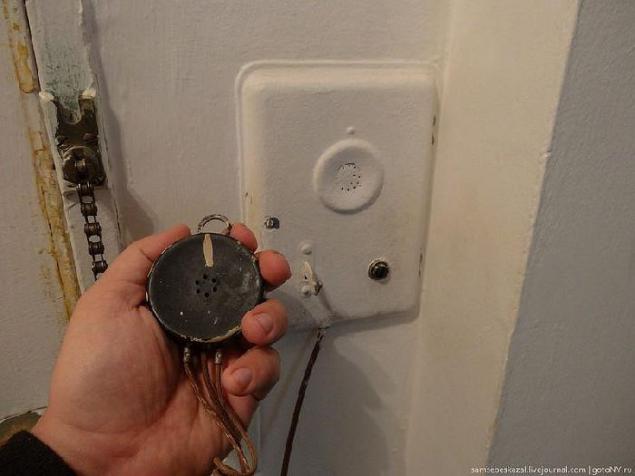
In the USSR intercoms (if you can call it) have appeared later, somewhere in the sixties and not in all cities. And if we talk about the reasons for their installation, now the main goal of the intercom - restrict access to the staircase, but before she was far more prosaic - heat retention.
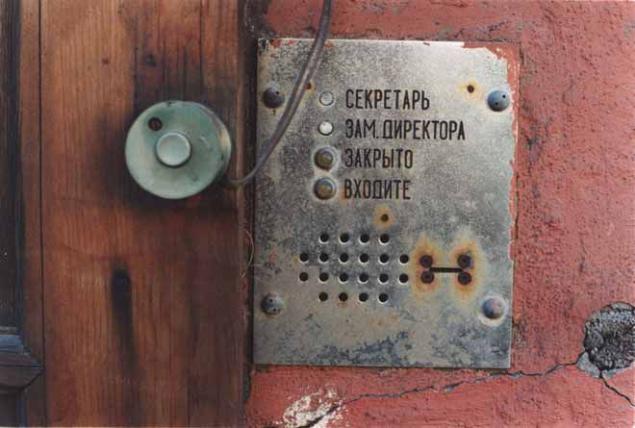
The first Soviet-ovskie intercoms lasted very long, but it is thanks to them that the designers have intercoms future appeared very invaluable experience, thanks to which they are for yourself made clear that in addition to the technological aspects of the problem, using intercoms present as well, and the psychological side of the issue. The Soviet people, brought up in communal still could not understand the code from your porch is not necessary to disclose the right and left, and even more so natsarapyvat it on or near the intercom panel itself.
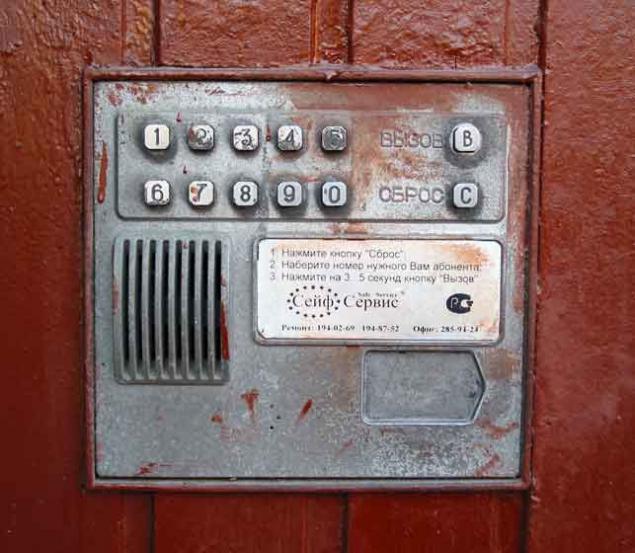
Talking about the advantages of the Soviet intercoms very easy, as in all traced solid cons - from the frequent use of the keys you pressed more often, with time to mechanical wear and oxidized, so pick up the coveted code for the ignorant man is not is no difficulty, intercoms often broke and They brought more disappointment to tenants, rather than benefit.
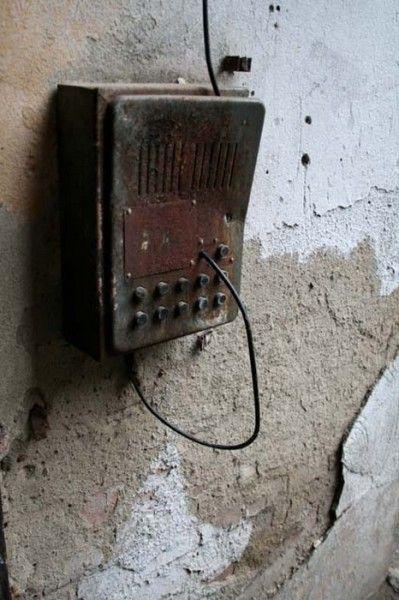
Just beyond the first generation of analog intercoms come (with simplex communication). The novelty lay in the fact that now the guest and the host could talk with each other, but did it in turn: first the owner to ask something, then a guest to say something. There is already with the domestic manufacturer began to appear on the market the Korean-Chinese phones. Our intercom was almost neubivaem and had the best weather-sheltered, but the imported analogues already could boast a stylish design and better functionality.
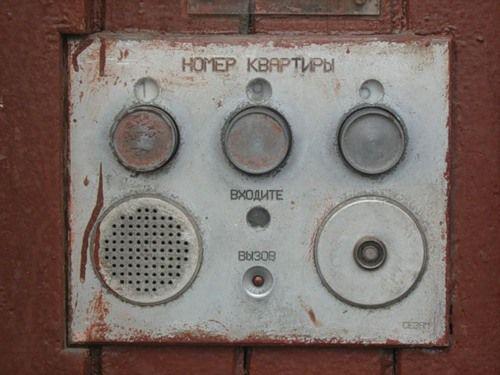
If we talk about the design of the panel, over its long journey, it was changed many times. Designers could not fantasize constantly and have made some innovations, trying to find the one familiar to us way intercom. Calling panels were with buttons and with handles and without them, but with a flashing LED with the rotary member, and others.
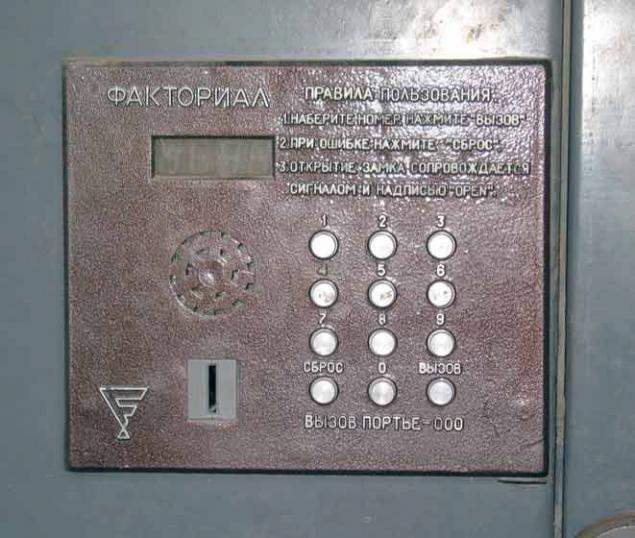
Intercom systems used in the first slot key device, but resourceful users have learned to easily access them without the keys. It was enough just to splash in that same slot very small amount of liquid and the lock opens himself. But this method works only on the condition that the intercom was intended to resistor keys, which are then (through evolution) have been replaced by optical.
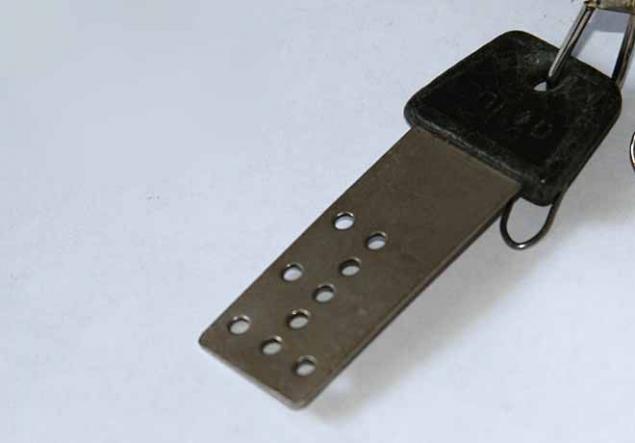
This is a completely new format keys as opaque for light strips with a unique hole pattern.
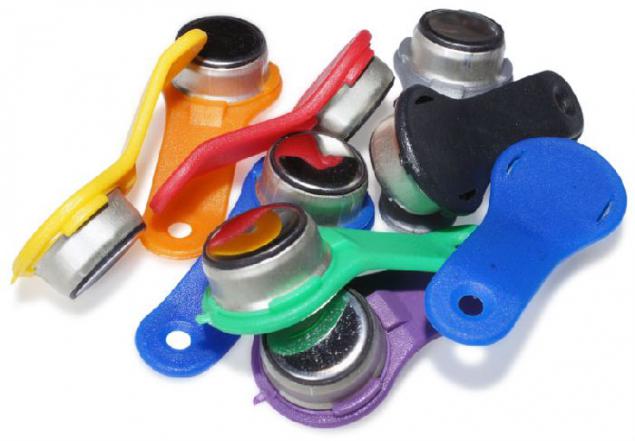
Then the battle already gone digital technology and in 1991 the American company Dallas Semiconductors produced a kind of revolution in domofonostroenii (if you can call it that), designing and setting a new standard keys for intercoms, which most of us enjoys to this day - TM keys, or "pills". And from that moment in history intercoms began a new digital phase of development, which has brought into our lives new devices, by which we not only hear, but also see the guest. Now you can open the locks remotely from a console or even just from the screen of your smartphone. And the latest models are equipped with even voice recognition, satellite communication, the scanner of the retina and other space technologies that are now developing very quickly and who knows what can we expect from the future of intercoms. But one thing is certain: with the advent of intercoms, our life has become more comfortable and safer, cleaner entrances and stairwells rarer unwanted and unpleasant characters. Let's see what will happen next…

Only 150 years after this story, in the 50s of the 20th century, somewhere in the United States, and perhaps in Scandinavia humanity "again" invented the same device which currently enjoys almost every one of us.

In the USSR intercoms (if you can call it) have appeared later, somewhere in the sixties and not in all cities. And if we talk about the reasons for their installation, now the main goal of the intercom - restrict access to the staircase, but before she was far more prosaic - heat retention.

The first Soviet-ovskie intercoms lasted very long, but it is thanks to them that the designers have intercoms future appeared very invaluable experience, thanks to which they are for yourself made clear that in addition to the technological aspects of the problem, using intercoms present as well, and the psychological side of the issue. The Soviet people, brought up in communal still could not understand the code from your porch is not necessary to disclose the right and left, and even more so natsarapyvat it on or near the intercom panel itself.

Talking about the advantages of the Soviet intercoms very easy, as in all traced solid cons - from the frequent use of the keys you pressed more often, with time to mechanical wear and oxidized, so pick up the coveted code for the ignorant man is not is no difficulty, intercoms often broke and They brought more disappointment to tenants, rather than benefit.

Just beyond the first generation of analog intercoms come (with simplex communication). The novelty lay in the fact that now the guest and the host could talk with each other, but did it in turn: first the owner to ask something, then a guest to say something. There is already with the domestic manufacturer began to appear on the market the Korean-Chinese phones. Our intercom was almost neubivaem and had the best weather-sheltered, but the imported analogues already could boast a stylish design and better functionality.

If we talk about the design of the panel, over its long journey, it was changed many times. Designers could not fantasize constantly and have made some innovations, trying to find the one familiar to us way intercom. Calling panels were with buttons and with handles and without them, but with a flashing LED with the rotary member, and others.

Intercom systems used in the first slot key device, but resourceful users have learned to easily access them without the keys. It was enough just to splash in that same slot very small amount of liquid and the lock opens himself. But this method works only on the condition that the intercom was intended to resistor keys, which are then (through evolution) have been replaced by optical.

This is a completely new format keys as opaque for light strips with a unique hole pattern.

Then the battle already gone digital technology and in 1991 the American company Dallas Semiconductors produced a kind of revolution in domofonostroenii (if you can call it that), designing and setting a new standard keys for intercoms, which most of us enjoys to this day - TM keys, or "pills". And from that moment in history intercoms began a new digital phase of development, which has brought into our lives new devices, by which we not only hear, but also see the guest. Now you can open the locks remotely from a console or even just from the screen of your smartphone. And the latest models are equipped with even voice recognition, satellite communication, the scanner of the retina and other space technologies that are now developing very quickly and who knows what can we expect from the future of intercoms. But one thing is certain: with the advent of intercoms, our life has become more comfortable and safer, cleaner entrances and stairwells rarer unwanted and unpleasant characters. Let's see what will happen next…









